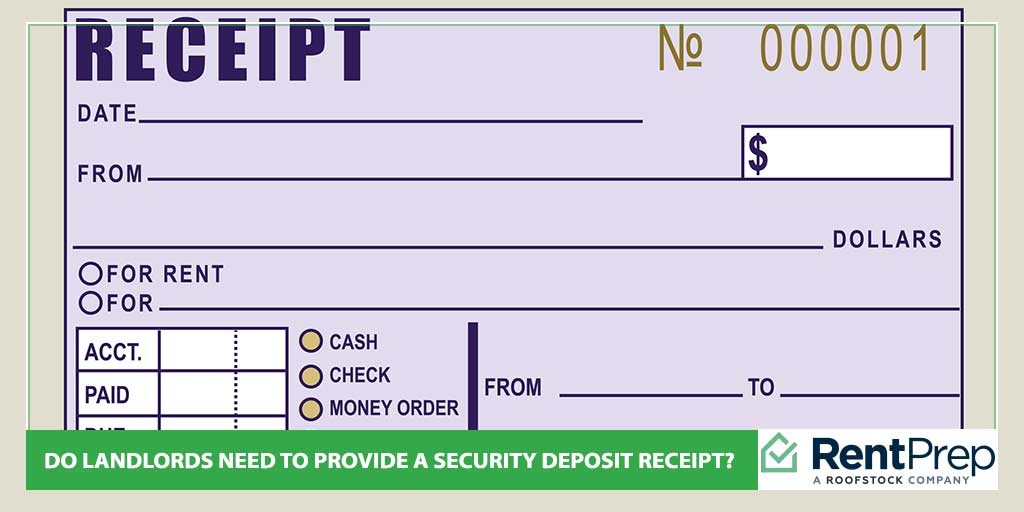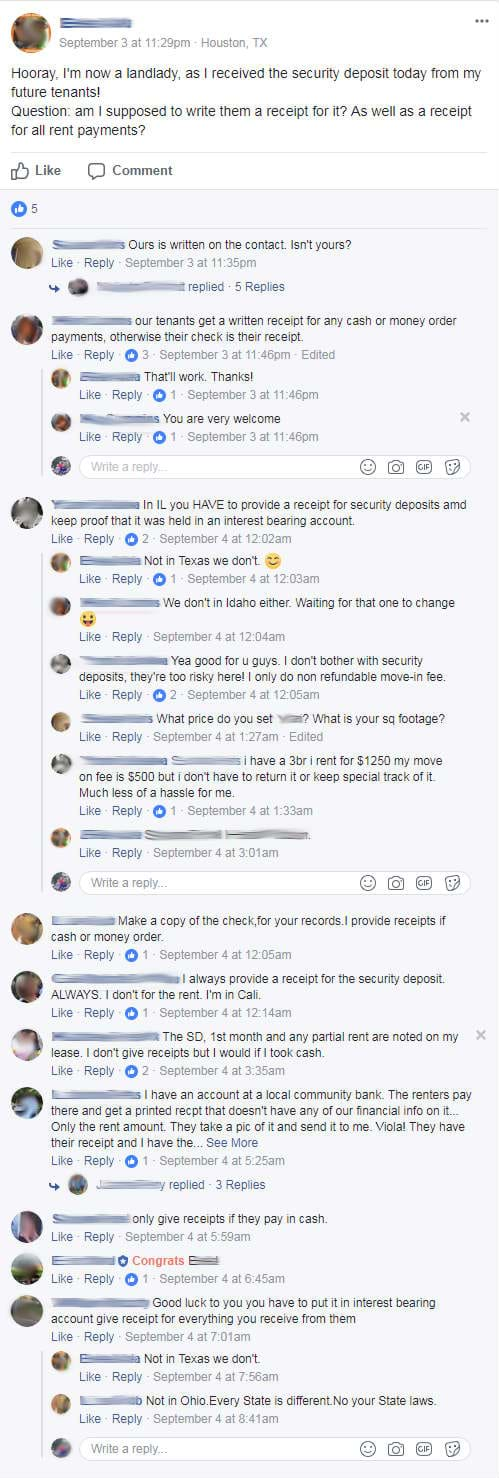
In the age of electronic financial transactions and digital deposits, many landlords wonder about whether or not they are required to provide a security deposit receipt.
Like most issues that have to do with rental properties, the answer is that it depends on several factors.
Landlords should always have written records of transactions, but that doesn’t always mean that they have to generate a receipt themselves.
Security Deposit Receipt Form
Before we get into the weeds, here is a free security deposit receipt form for your records.
Feel free to use that form whenever collecting a security deposit from a tenant.
When Should Landlords Provide a Security Deposit Receipt?

Electronic payments are extremely popular now for landlords to collect rent. These kinds of transactions create their own electronic receipts to both the sender and the recipient. Landlords with this kind of setup don’t have to do anything regarding a receipt.
Fewer and fewer landlords actually deal in cash, money orders or checks anymore. However, if a landlord ever accepts cash or a money order, they should always write out a receipt.
Landlords that accept checks can treat the canceled check as the tenant’s receipt.
No matter how the landlord has the payment process structured, there should always be a record of the transaction, regardless of who or what generates the receipt.
State Law May Require Landlords to Provide a Security Deposit Receipt
Every landlord knows that the security deposit and the rent are two different financial transactions. State laws often stipulate how each one should be handled, from the amount to how it is deposited. It’s always a good idea to treat these two things separately so that there is a bank record of each one.
Some states, like Illinois and Massachusetts, require the landlord to hold the security deposit in an interest-bearing account and present the receipt to the tenant. Other states, like Ohio and Texas, have no laws regarding separate accounts.
We’ve written a post that highlights every state that has laws on where security deposit funds should be kept.
This video below will cover what to do with your security deposit funds.
When it comes down to it, each landlord must know their own state laws about how they are to treat the security deposit, and whether that means they issue a receipt or not.
RentPrep’s Take On Landlords Who Provide Security Deposit Receipts

The landlords we associate with are fairly unanimous about issuing receipts by hand when they are paid by cash or money order.
Issuing a receipt is often a personal preference. Some landlords do so as part of their accounting, and some even have software that creates receipts, either physical or electronically.
Others have a digital payment system set up. When the tenant makes a payment, they have verification that it was done.
Ultimately, landlords need to figure out a system that works best for them, as well as their tenants.
A Sad Tale About Security Deposit Receipts
We had a landlord from Pittsburgh that called our office looking for advice.
He gave a former tenant their security deposit back in cash, as that’s how it was given to him.
The tenant turned around and took him to small claims court where the former tenant claimed he was never paid back for the security deposit.
There was no record or paper trail because the landlord didn’t have the tenant sign a cash receipt.
Sadly, the judge had no choice but to side with the tenant and the landlord paid back the same security deposit twice.
This is a good example of why it’s a good practice to stay away from cash exchanges between landlords and tenants.
What Are Other Landlords Saying About Security Deposit Receipts?
Here’s a screenshot of landlords discussing this question in our private Facebook group for Landlords.
You can see even more comments on that post by checking it out in the group.


